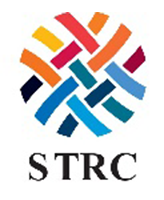Rethinking a Post-Circular Textile Future
The STRC 2025 gathers a group of forward-thinking professionals to challenge mainstream narratives around sustainable fashion and chemistry.
While circularity has become a dominant framework in the textile industry it often falls short in practice. A promise to close loops, reduce waste, and reconcile production with environmental limits. It offers the comforting idea that consumption can continue, just differently. Yet after years as a global megatrend, the gap between vision and reality remains wide. Action has lagged, and impact has fallen short.
Circularity is not a perfect circle. It’s a deceleration, an attempt to delay, not eliminate, material and energy loss. Recycling, while necessary, is not true regeneration. Materials degrade, energy is consumed, and systems leak. The ideal of a closed loop often ignores a simple truth: no industrial process is free from entropy or external cost.
In an economy historically built on extraction and growth, circularity risks becoming more symbolic than structural. Rather than reinforcing an idealized model, perhaps it’s time to rethink the underlying narrative. What if the future of fashion wasn’t fast, or even fully circular, but more mindful?
A more resilient and realistic alternative could lie in in the concept of ecodesign: a science-based approach that begins at the molecular level and considers the full life cycle before a product is ever made. It embraces complexity of products, dynamics of supply chains, prioritizes safety and durability, and integrates transparency from the start. Instead of focusing solely on recyclability, ecodesign addresses the intent, function, and footprint of materials, not as waste-in-waiting but as long-term assets.
Here, chemistry plays a pivotal role in enabling better-performing materials, but also in supporting digital traceability, safer formulations, and more intelligent design decisions. Tools like the Digital Product Passport can bring visibility and accountability to every stage of a product’s life.
The future of sustainability may not lie in closing every loop, but in building systems that are robust, transparent, and conscious of limits. Ecodesign isn’t a silver bullet – it’s a foundation. A way to progress with clarity, responsibility, and care.
